
Uncovering the Root Causes of Hair Loss and Natural Solutions
Share
Uncovering the Root Causes of Hair Loss and Natural Solutions
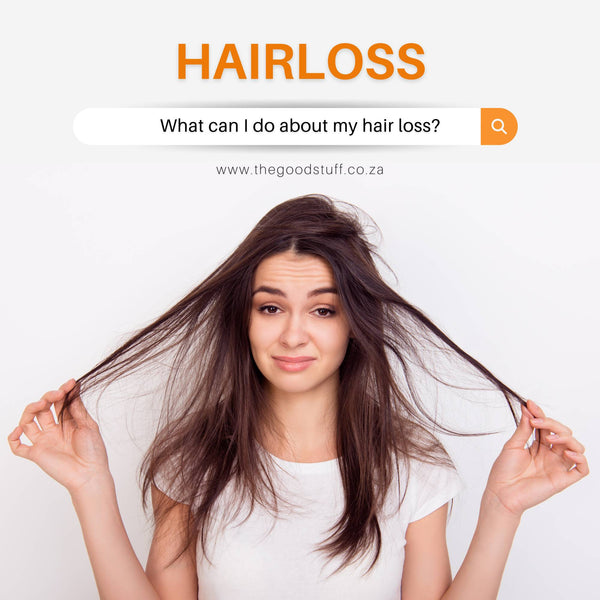
Hair loss is a common challenge that can affect a person’s self-esteem and appearance. Androgenetic l alopecia, referred to as male or female pattern baldness, is the most common cause of hair loss. Hair loss can be a frustrating and distressing experience for many people. Various factors, including genetics, hormonal changes, medical conditions, and certain medications, can cause it. This blog post will explore the most common causes of hair loss and what you can do to address them.
Thinning hair and shedding excess hair can devastate both men and women. Hair loss has many reasons, from excessive amounts of Vitamin A to chronic underlying health conditions. Stress or illness, hormonal fluctuations during pregnancy, menopause or polycystic ovarian syndrome, protein deficiency, thyroid conditions, autoimmune disorders, medication, vitamin deficiencies and chemotherapy are all factors relating to hair loss.
Hair loss is caused by a disruption in the body’s ability to produce hair. Hair loss can occur anywhere on the body but most commonly affects the scalp. If a hair follicle is damaged or stressed, hair may begin to fall out more quickly, leading to symptoms of receding hairline, patches of balding or overall thinning of hair.
The problem begins when new hair doesn’t replace the normal daily hair loss caused by the body’s fluctuating rhythms and hormone levels. As the thinning process continues, new growth stops completely in certain parts of the scalp.
One of the most common causes of hair loss is genetics. If you have a family history of hair loss, you may be more likely to experience it yourself. Male pattern baldness, also known as androgenetic alopecia, is a genetic condition that affects many men. It typically presents as a receding hairline and thinning on the crown of the head.
Another common cause of hair loss is hormonal changes. Women may experience hair loss during pregnancy, menopause, or other hormonal changes. This hair loss is typically temporary and will resolve once hormones return to normal.
Medical conditions such as thyroid disorders, autoimmune diseases, and iron deficiency anaemia can also cause hair loss. Speaking to a healthcare professional if you suspect a medical condition is causing your hair loss is important.
Certain medications can also cause hair loss as a side effect. These medications include blood thinners, antidepressants, and beta-blockers. If you take any medications concerned with hair loss, speak to your healthcare professional about switching to a different medication or lowering your dose.
The human scalp contains approximately 100,000 hair follicles. Of these, 90% are in the anagen phase, where there is no alopecia, requiring essential elements, including vitamins and minerals, to produce healthy hair efficiently. While hair loss can be distressing, there are several things you can do to address it, which this blog post intends to do.
Whilst male and female pattern baldness is considered hereditary and inevitable, there are ways to slow down hair loss by adding a few extra vitamins to your daily routine.
The hair and scalp condition reflects the general well-being of the body and mind. Almost any illness or emotional stress can cause dull, lifeless hair. Eating a well-balanced diet with plenty of fresh vegetables slows down the process of hair loss. These foods contain flavonoids, which are antioxidants, many of which may provide protection for the hair follicles and encourage hair growth.
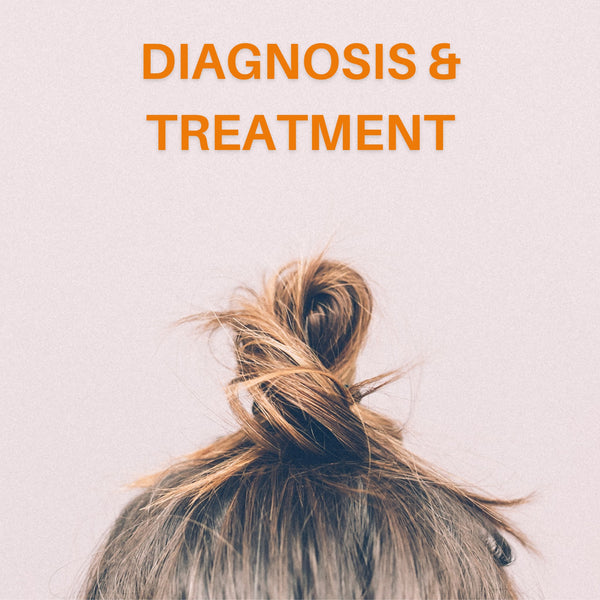
Diagnosis and Treatment
Hair loss is typically diagnosed through blood tests, scalp examination, and biopsy. These tests help determine the hair loss's underlying cause and guide treatment. Blood tests are done to check for any underlying medical conditions, deficiencies and hormonal imbalances which can cause hair loss. A scalp examination is done to check for any signs of infection, inflammation or other visible symptoms. A biopsy is performed if the doctor suspects certain autoimmune conditions or other hair loss disorders.
Medical treatments for hair loss include minoxidil, finasteride, and hair transplants. Minoxidil is a topical solution applied to the scalp; it increases blood flow to the hair follicles and thus promotes hair growth. Finasteride is an oral medication that blocks the production of DHT (dihydrotestosterone), a hormone that causes hair loss. Hair transplants involve transplanting hair from one area of the scalp to another; it's a surgical procedure that requires multiple sittings and is more suitable for those with moderate to severe hair loss.
Natural remedies for hair loss include essential oils, herbal supplements, and dietary changes. These remedies can help to promote hair growth and prevent hair loss. Essential oils like rosemary, lavender and peppermint can be used for scalp massage and to promote hair growth. Herbal supplements like saw palmetto, biotin, and ginseng can also boost hair growth. A diet rich in iron, zinc and protein is essential for healthy hair growth. Read more about the best supplements to encourage hair growth below.
Lifestyle changes, such as reducing stress and avoiding damaging styling practices, can also help to prevent hair loss. Stress is a major cause of hair loss, and it's important to find ways to manage it. Avoiding tight hairstyles, excessive heat styling, and chemical treatments can also help to prevent hair loss.
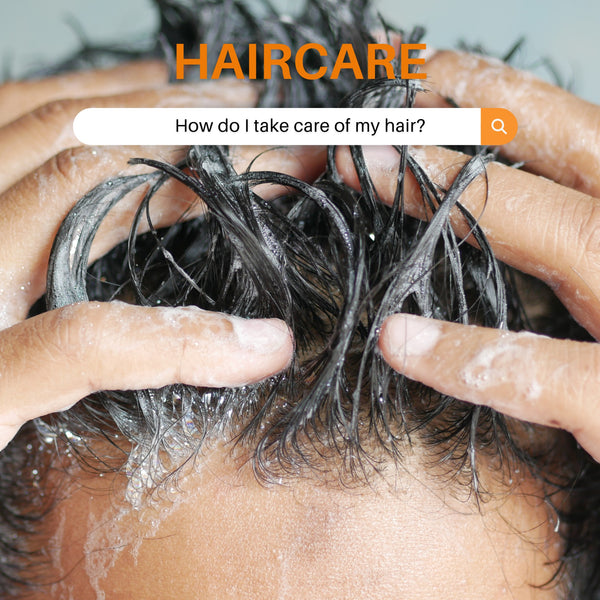
The Role of Hair Care Products
Hair care products can be a great way to nourish and strengthen your hair, promoting growth and preventing hair loss. But with so many options available, how do you know which products are right for you?
Shampoo and conditioner are the foundation of any good hair care routine. They're designed to cleanse and moisturise your hair, respectively, leaving it looking and feeling healthy. Look for products free of harsh chemicals formulated for your hair type, whether oily, dry, or somewhere in between. For example, if you have dry hair, look for a moisturising shampoo and conditioner that will nourish your hair without weighing it down.
Rosemary is known to be an effective natural remedy for hair loss. This herb contains several compounds that have been found to help promote hair growth, including rosmarinic acid, camphor, and caffeic acid. These compounds work by stimulating blood flow to the scalp, which in turn helps to nourish the hair follicles and promote healthy hair growth. Additionally, rosemary has been shown to help strengthen the hair shafts and reduce hair breakage, making it an ideal choice for those looking to improve the overall health of their hair. Whether you're looking to prevent hair loss or promote new growth, incorporating rosemary into your hair care routine can help you achieve your goals.
Hair oils and serums are other popular options for promoting hair growth and preventing hair loss. These products can add shine and moisture to your hair and can also help protect your hair from heat damage. Some popular oils include coconut oil, argan oil, and castor oil. Serums can also add shine and moisture to your hair and protect it from heat damage.
Leave-in conditioners and hair masks are also great options for those looking to nourish and strengthen their hair. Leave-in conditioners can add moisture to your hair and protect it from damage, while hair masks can deep condition your hair and repair damage.
When choosing hair care products, it's important to consider your hair type and needs. For example, if you have oily hair, you'll want to look for formulated products, as they'll be less likely to weigh your hair down. If you have dry hair, on the other hand, you'll want to look for products that are formulated to add moisture to your hair.
Another important factor to consider is the ingredients in your products. Avoid products that contain harsh chemicals or synthetic fragrances, as these can be damaging to your hair and scalp. Instead, look for products that are made with natural ingredients and are free of harsh chemicals.
In summary, hair care products can be a great way to nourish and strengthen your hair, promoting growth and preventing hair loss. When choosing products, consider your hair type and needs, and look for products formulated for your hair type and made with natural ingredients. You can have healthy, beautiful hair that looks and feels great with the right products.
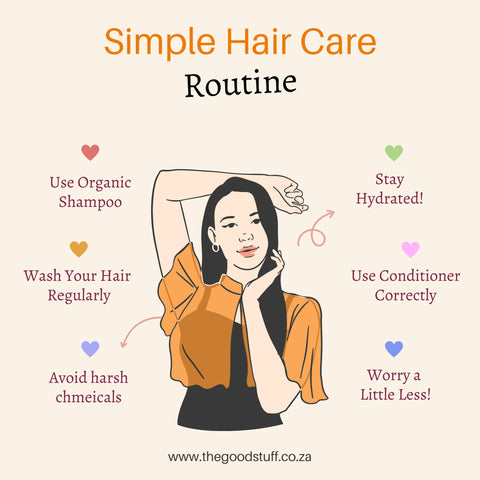
The Best Supplements to encourage Hair Growth
Fenugreek
Fenugreek is a herb native to Southern Europe, the Mediterranean and Western Asia. Many cultures use Fenugreek in medicine and cooking, and it is well known to boost digestion. Some people use Fenugreek to promote hair growth, as it stimulates blood circulation, stimulating the damaged hair follicle to influence hair growth. Various plant compounds in Fenugreek may interact with a chemical in the body known as DHT (dihydrotestosterone). If DHT attaches itself to the hair follicles, hair loss will occur sooner or later. Fenugreek may slow down the ability of DHT to attach to the hair follicles.
Fenugreek, also known as methi, is a popular herb used for centuries in Ayurvedic medicine to promote hair growth and prevent hair loss. This versatile herb is rich in vitamins, minerals, and antioxidants that can nourish the hair and scalp, leading to healthier, stronger hair.
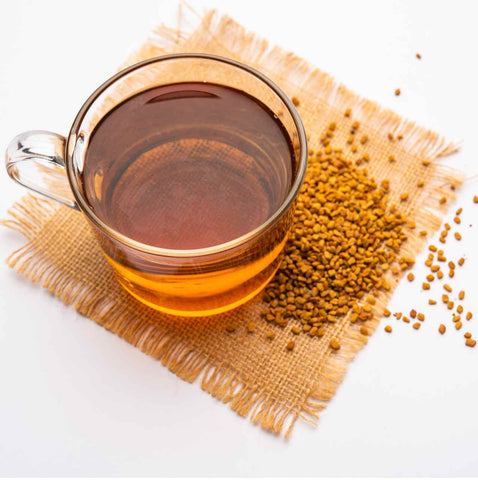
One of the key benefits of fenugreek for hair is its ability to nourish the hair follicles. The fenugreek plant seeds are rich in vitamins A, C, and E and minerals like iron, potassium, and zinc. These nutrients are essential for healthy hair growth and can help to strengthen the hair and prevent hair loss.
Fenugreek is also a rich source of antioxidants, which can help to protect the hair and scalp from damage caused by free radicals. Antioxidants like those found in fenugreek can help to neutralise free radicals, preventing them from causing damage to your hair. These harmful molecules can damage the hair and lead to hair loss, so it's important to protect your hair from them.
Fenugreek can also help to soothe the scalp, making it a great choice for those with an itchy, irritated scalp. It can reduce inflammation and irritation, which can lead to hair loss. Fenugreek can also help to promote healthy blood circulation in the scalp, which is essential for healthy hair growth.
To use fenugreek for hair loss, you can make a hair mask by soaking fenugreek seeds overnight and grinding them into a paste. Apply the paste to your scalp and hair, and leave it on for at least 30 minutes before washing it off. You can also use fenugreek oil, which can be massaged into the scalp to promote hair growth.
Another way to use fenugreek for hair loss is to consume it as a supplement. Fenugreek supplements are available in capsules, tablets, and teas. They can help boost your hair's overall health and prevent hair loss from the inside out.
Fenugreek is a great natural remedy for hair loss; it's rich in nutrients and antioxidants that can nourish the hair and scalp and promote healthy hair growth. Using fenugreek as a hair mask, oil, or supplement can help strengthen your hair and prevent hair loss. It's always advisable to consult a healthcare professional before taking any supplement to ensure that it does not interact with any medication you may be taking.
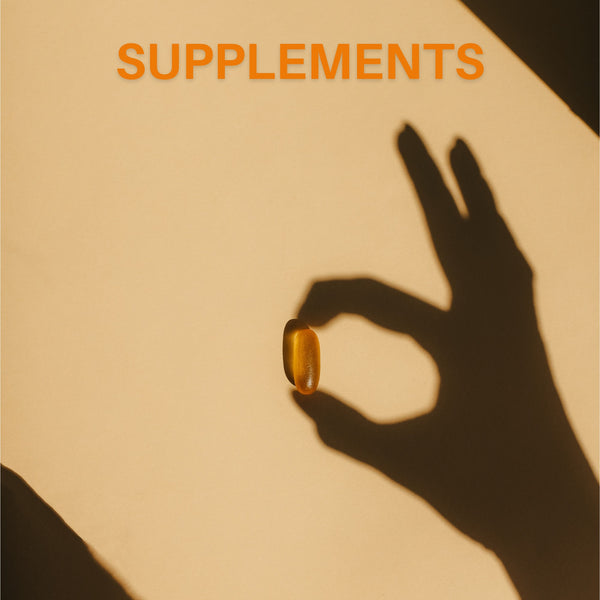
Vitamin B
The Vitamin B Complex includes eight water-soluble substances that aid in cell metabolism. Riboflavin (B2) Folate and Methylcobalamin (B12) have been associated with hair loss.
Vitamin B is a group of essential nutrients that play a vital role in maintaining healthy hair. These vitamins nourish the hair, promote growth, and prevent hair loss. This post will explore the different types of Vitamin B and how they can benefit your hair.
B vitamins, such as Biotin (B7), Niacin (B3), and Vitamin B12, are essential for the growth and maintenance of healthy hair. Biotin, also known as Vitamin H, is particularly important for hair health. It helps to strengthen the hair shaft and promote hair growth. A biotin deficiency can lead to hair loss, thinning, and a dry, flaky scalp.
Niacin, also known as Vitamin B3, helps to improve blood circulation in the scalp, which is essential for hair growth. It also helps to nourish the hair follicles and prevent hair loss.
Vitamin B12 is crucial for the health of the hair and scalp. It helps to produce red blood cells, which carry oxygen and other essential nutrients to the hair follicles. A deficiency in Vitamin B12 can lead to hair loss and a dry, itchy scalp.
Vitamin B6 and Folate (B9) are also important for hair health. They help to produce melanin, which gives hair its colour and supports the production of red blood cells, which carry oxygen to the hair follicles.
A vitamin B diet can help prevent hair loss and promote healthy hair growth. Foods high in Vitamin B include leafy greens, nuts, seeds, eggs, fish, chicken, and avocados. You can also get Vitamin B from supplements. Still, it's always best to consult a healthcare professional before taking any supplements to ensure that it does not interact with any medication you may be taking.
To ensure that you're getting enough Vitamin B in your diet, it's important to eat a well-balanced diet that includes a variety of fruits, vegetables, and whole grains. You should also consider taking a Vitamin B complex supplement containing all the different types of Vitamin B if you're concerned that you may be deficient in any of them.
In addition to eating a diet rich in Vitamin B, you can also do other things to promote healthy hair growth and prevent hair loss. These include reducing stress, avoiding harsh hair treatments, and practising good hair care.
Vitamin B is a group of essential nutrients that play a vital role in maintaining healthy hair. Eating a diet rich in Vitamin B, and taking a Vitamin B complex supplement, can help to prevent hair loss and promote healthy hair growth. Biotin, Niacin, Vitamin B12, Vitamin B6 and Folate are particularly important for hair health. However, as always, it's best to consult a healthcare professional before taking any supplement to ensure that it does not interact with any medication you may be taking.
Biotin (Vitamin B7)
Biotin is a water-soluble B vitamin produced by the body that stimulates keratin production in hair and can increase the rate of hair growth. Low levels of Biotin can result in Hair loss, skin rashes and brittle nails. Pregnancy or breastfeeding and certain antibiotics can affect Biotin levels.
Biotin, also known as Vitamin H, is an essential nutrient that plays a crucial role in maintaining healthy hair. Biotin is known for its ability to strengthen the hair shaft, promote hair growth, and prevent hair loss. In this post, we'll explore the benefits of biotin for hair health and how you can incorporate it into your hair care routine.
Biotin is a B vitamin that helps to support hair, skin, and nail health. It works by assisting the body in the metabolism of proteins, which are the building blocks of hair. Biotin helps to strengthen the hair shaft, preventing breakage and split ends. It also helps to promote hair growth by stimulating the hair follicles.
A biotin deficiency can lead to hair loss, thinning, and a dry, flaky scalp. Various factors, such as malnutrition, pregnancy, and certain medical conditions, can cause a deficiency in biotin. Incorporating biotin-rich foods into your diet or taking a biotin supplement can help to prevent biotin deficiency and promote healthy hair growth.
Foods high in biotin include eggs, nuts, seeds, brewer’s yeast, brown rice, bulgar, green peas, lentils, oats, sunflower seeds, walnuts and leafy greens. You can also get biotin from supplements, but it's always best to consult a healthcare professional before taking any supplements to ensure that it does not interact with any medication you may be taking.
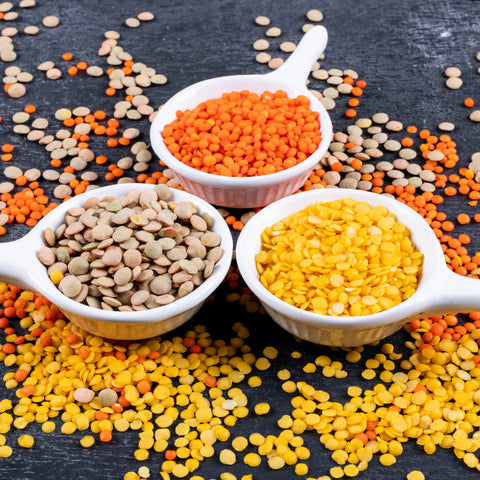
In addition to incorporating biotin-rich foods into your diet, you can also do other things to promote healthy hair growth and prevent hair loss. These include reducing stress, avoiding harsh hair treatments, and practising good hair care. For example, using a gentle shampoo and conditioner, and avoiding heat styling tools, can help to protect your hair from damage and promote healthy hair growth.
Biotin is an essential nutrient that plays a crucial role in maintaining healthy hair. It helps to strengthen the hair shaft, promote hair growth, and prevent hair loss. Incorporating biotin-rich foods into your diet, or taking a biotin supplement, can help to prevent biotin deficiency and promote healthy hair growth. Always consult a healthcare professional before taking any supplement to ensure that it does not interact with any medication you may be taking.
Iron
When the body doesn’t have enough Iron, it cannot produce haemoglobin in the blood. Haemoglobin carries oxygen to the body’s cells for growth and repair, including those that stimulate hair growth. Low levels of Iron can cause Iron deficiency anaemia. Symptoms include fatigue, pale skin and hair loss. Low Iron levels can occur in women with heavy menstruation or vegetarians and vegans.
Iron is an essential mineral that is crucial in maintaining healthy hair. Iron carries oxygen to the hair follicles, and an iron deficiency can lead to hair loss. In this post, we'll explore the benefits of iron for hair health and how you can incorporate it into your hair care routine.
Nettle is a natural hair loss remedy used for centuries to promote healthy hair growth. The herb contains vitamins A, C, and K and minerals such as iron and silica. These nutrients are essential for healthy hair growth and can help to strengthen hair strands, reducing the risk of breakage and hair loss. Nettle also contains compounds that have been shown to block the production of DHT, a hormone that can lead to hair loss. Additionally, nettle has anti-inflammatory properties that can help to soothe the scalp and alleviate conditions such as dandruff and eczema, which can contribute to hair loss. By incorporating nettle into your hair care routine, you can help to nourish your hair from the roots and promote healthy growth.
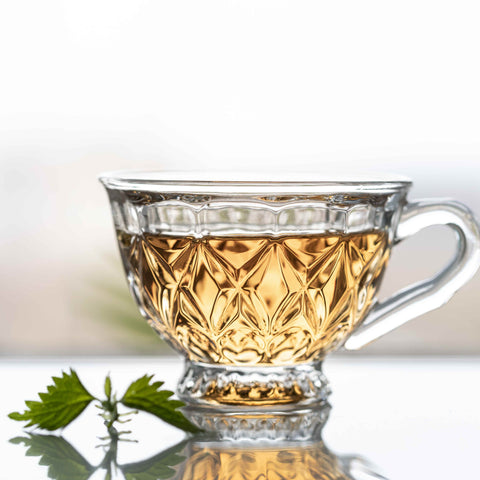
Iron is essential for the growth and maintenance of healthy hair. It carries oxygen to the hair follicles, which are responsible for new hair growth. Without enough oxygen, the hair follicles can become damaged, leading to hair loss. An iron deficiency can also cause the hair to become weak, brittle, and dull.
Iron deficiency is one of the most common causes of hair loss. The condition is known as anaemia, and it occurs when the body doesn't have enough iron to produce enough red blood cells, which carry oxygen to the hair follicles. Symptoms of anaemia include fatigue, weakness, and hair loss.
Foods high in iron include red meat, poultry, seafood, beans, leafy greens, and fortified cereals. Vegetarian and vegan sources of iron include legumes, tofu, fortified bread, cereals and grains. Vitamin C helps the body to absorb iron more efficiently, so it's a good idea to eat iron-rich foods with Vitamin C-rich foods.
Iron supplements can also be taken to prevent hair loss caused by iron deficiency. Still, it's always best to consult a healthcare professional before taking any supplements to ensure that it does not interact with any medication you may be taking.
In addition to incorporating iron-rich foods into your diet, you can also do other things to promote healthy hair growth and prevent hair loss. These include reducing stress, avoiding harsh hair treatments, and practising good hair care. Using a gentle shampoo and conditioner, and avoiding heat styling tools, can help to protect your hair from damage and promote healthy hair growth.
Foods that boost Iron levels include grass-fed red meat, leafy greens and legumes.
Vitamin C
Vitamin C is a powerful antioxidant with several important roles that can affect hair health. It contributes to synthesising collagen, which contains amino acids that can be used to build keratin, an important part of the hair structure. It enhances the absorption of Iron, and it protects the hair from oxidative stress, which is linked to hair loss. Oxidative stress is an imbalance between free radicals and antioxidants in the body. Free radicals can cause large chain reactions because they react easily with other molecules. These reactions are called oxidation and can be harmful. Vitamin C acts to neutralise free radicals.
Vitamin C is a powerful antioxidant that is vital in maintaining healthy hair. This essential nutrient promotes hair growth, strengthens the hair shaft, and prevents hair loss. In this post, we'll explore the benefits of Vitamin C for hair health and how you can incorporate it into your hair care routine.
Vitamin C is essential for producing collagen, a protein that gives structure to the hair and skin. Collagen is responsible for the strength and elasticity of the hair, and a deficiency in Vitamin C can lead to weak and brittle hair that is more prone to breakage.
Vitamin C also helps to protect the hair and scalp from damage caused by free radicals, which can lead to hair loss. Free radicals are harmful molecules that can damage the hair and lead to hair loss. Vitamin C neutralises these free radicals, preventing them from causing damage to your hair.
Vitamin C is also important for iron absorption, a mineral that is essential for hair growth. Iron carries oxygen to the hair follicles, and an iron deficiency can lead to hair loss. Vitamin C helps the body to absorb iron more efficiently, which can help to prevent hair loss.
Foods with vitamin C include oranges, lemons, kiwi, papaya, berries, and leafy greens. You can also get Vitamin C from supplements. Still, it's always best to consult a healthcare professional before taking any supplements to ensure that it does not interact with any medication you may be taking.
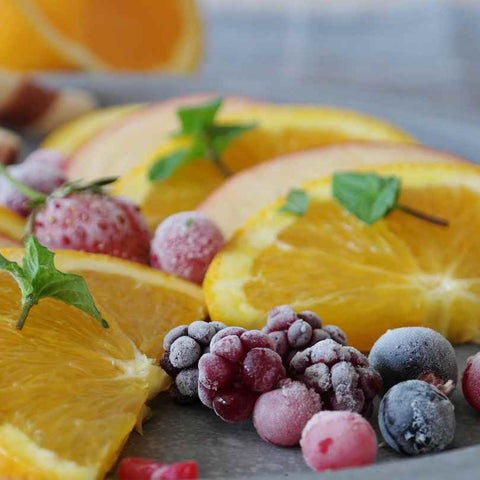
In addition to incorporating Vitamin C-rich foods into your diet, you can also do other things to promote healthy hair growth and prevent hair loss. These include reducing stress, avoiding harsh hair treatments, and practising good hair care. Using a gentle shampoo and conditioner, and avoiding heat styling tools, can help to protect your hair from damage and promote healthy hair growth.
In conclusion, Vitamin C is a powerful antioxidant that plays a vital role in maintaining healthy hair. It promotes hair growth, strengthens the hair shaft, and prevents hair loss. Incorporating Vitamin C-rich foods into your diet, or taking a Vitamin C supplement, can help to prevent hair loss and promote healthy hair growth. Always consult a healthcare professional before taking any supplement to ensure that it does not interact with any medication you may be taking.
Some good dietary sources of Vitamin C include leafy greens, citrus fruits, berries, and bell peppers.
Vitamin D
We all know that Vitamin D is important for bone health. But low levels of Vitamin D are also linked to hair loss. Vitamin D is made in the skin when exposed to sunlight. It is metabolised in the skin by keratinocytes, which are skin cells that process keratin, a protein in hair, nails and skin. When the body doesn’t have enough Vitamin D, the Keratocytes in the hair follicles struggle to regulate hair growth and shedding. There is a link between Vitamin D deficiency and alopecia, and it is one of the common causes of thinning hair or hair loss in men and women. Supplementing with Vitamin D can be helpful as most people are deficient. It helps to restore hair loss and thickens existing hair. Vitamin D should be taken with Magnesium to improve bioavailability.
Vitamin D, also known as the "sunshine vitamin," is crucial in maintaining healthy hair growth. This essential nutrient is responsible for promoting the absorption of calcium, which is essential for maintaining the strength and structure of the hair. Low vitamin D levels can lead to hair loss and thinning, as well as other hair problems such as dryness and brittle strands.
One of the most important functions of vitamin D is to promote the growth and development of new hair follicles. This is accomplished by stimulating the production of new cells in the hair follicles, which leads to stronger and healthier hair. Additionally, vitamin D helps to protect the hair from damage caused by free radicals and UV radiation.

In addition to vitamin D, a well-balanced diet, regular exercise, and a healthy lifestyle are also important for maintaining healthy hair growth. So, if you're looking to boost your hair health and prevent hair loss, ensure you're getting enough vitamin D and other essential nutrients such as protein, iron, and biotin.
Dietary recommendations include eating fatty fish.
Zinc
Zinc is an essential trace element, meaning the body can’t produce it. It must be supplemented in the diet. Zinc plays an important role in making proteins in hair cells. Signs of zinc deficiency include hair loss, slow wound healing and a weak sense of taste or smell.
Alopecia is a well-known sign of established zinc deficiency, with well-documented hair regrowth occurring with zinc supplementation.
Zinc is an essential mineral that is vital in maintaining healthy hair. Zinc is important for the growth and maintenance of healthy hair, and a zinc deficiency can lead to hair loss. In this post, we'll explore the benefits of zinc for hair health and how you can incorporate it into your hair care routine.
Zinc is essential for the growth and maintenance of healthy hair. It helps to support the production of collagen, a protein that gives structure to the hair and skin. Collagen is responsible for the strength and elasticity of the hair, and a zinc deficiency can lead to weak and brittle hair that is more prone to breakage.
Zinc also helps regulate oil production in the scalp, preventing dryness and dandruff. A dry, itchy scalp can lead to hair loss, so it's important to keep it moisturised and healthy.
Zinc also helps to support the immune system, which can prevent hair loss caused by autoimmune disorders. An autoimmune disorder occurs when the body's immune system attacks healthy cells, including hair follicles, leading to hair loss.
Foods high in zinc include oysters, red meat, poultry, beans, nuts, and whole grains. You can also get zinc from supplements, but it's always best to consult a healthcare professional before taking any supplements to ensure that it does not interact with any medication you may be taking.
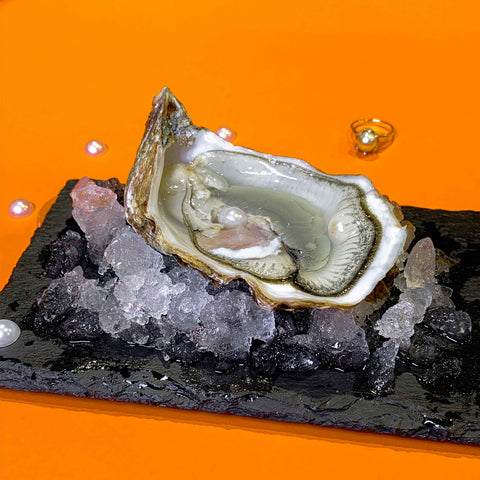
In addition to incorporating zinc-rich foods into your diet, you can also do other things to promote healthy hair growth and prevent hair loss. These include reducing stress, avoiding harsh hair treatments, and practising good hair care. Using a gentle shampoo and conditioner, and avoiding heat styling tools, can help to protect your hair from damage and promote healthy hair growth.
Zinc is an essential mineral that plays a vital role in maintaining healthy hair. It helps to support the production of collagen, regulates oil production in the scalp and supports the immune system. Incorporating zinc-rich foods into your diet, or taking a zinc supplement under a healthcare professional's guidance, can help prevent hair loss and promote healthy hair growth. Remember that it's always best to consult a healthcare professional before taking any supplement to ensure that it does not interact with any medication you may be taking.
The main dietary sources of Zinc are fish and meat.
Collagen
Collagen is a protein that plays a vital role in maintaining healthy hair. Collagen is important for the growth and maintenance of healthy hair, and a collagen deficiency can lead to hair loss. In this post, we'll explore the benefits of collagen for hair health and how you can incorporate it into your hair care routine.
Collagen is the most abundant protein in our bodies and is found in our skin, hair, nails, bones and joints. It gives structure to the hair and skin and is responsible for the strength and elasticity of the hair. Collagen helps to keep the hair strong and healthy, and a collagen deficiency can lead to weak and brittle hair that is more prone to breakage.
Collagen also helps to hydrate the hair and scalp, keeping them moisturised and healthy. A dry, itchy scalp can lead to hair loss, so it's important to keep it moisturised and healthy. Collagen also helps to prevent hair loss by improving blood circulation to the scalp, which can encourage hair growth.
Collagen can be found in bone broth, fish, chicken, eggs and dairy products. However, it can also be taken as a supplement. Various collagen supplements are available, such as powders, capsules, and liquids. When taking collagen supplements, it's always best to consult a healthcare professional to ensure that it does not interact with any medication you may be taking.
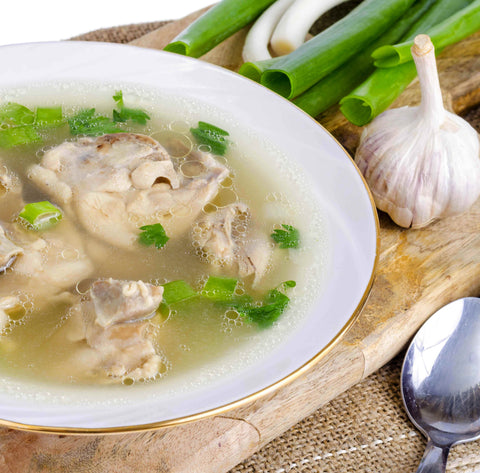
In addition to incorporating collagen-rich foods into your diet, you can also do other things to promote healthy hair growth and prevent hair loss. These include reducing stress, avoiding harsh hair treatments, and practising good hair care. Using a gentle shampoo and conditioner, and avoiding heat styling tools, can help to protect your hair from damage and promote healthy hair growth.
Collagen is a protein that plays a vital role in maintaining healthy hair. It gives structure to the hair and skin, helps to keep the hair strong and healthy, hydrates the hair and scalp, and improves blood circulation to the scalp. Incorporating collagen-rich foods into your diet, or taking a collagen supplement under a healthcare professional's guidance, can help prevent hair loss and promote healthy hair growth.
Other solutions
Rosemary is known to be an effective natural remedy for hair loss. This herb contains a number of compounds that have been found to help promote hair growth, including rosmarinic acid, camphor, and caffeic acid. These compounds work by stimulating blood flow to the scalp, which in turn helps to nourish the hair follicles and promote healthy hair growth. Additionally, rosemary has been shown to help strengthen the hair shafts and reduce hair breakage, making it an ideal choice for those looking to improve the overall health of their hair. Whether you're looking to prevent hair loss or promote new growth, incorporating rosemary into your hair care routine can help you achieve your goals.
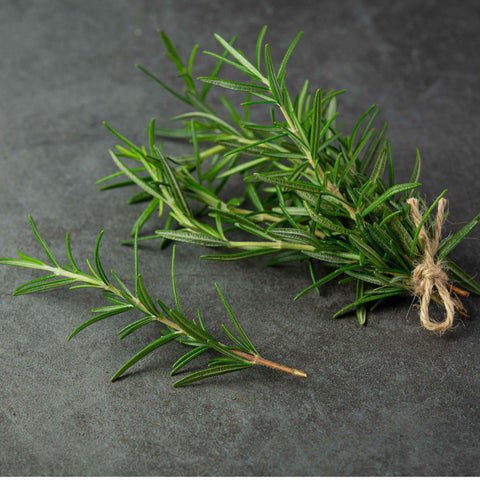
Nettle is a natural hair loss remedy that has been used for centuries to promote healthy hair growth. The herb is rich in vitamins A, C, and K, as well as minerals such as iron and silica. These nutrients are essential for healthy hair growth and can help to strengthen hair strands, reducing the risk of breakage and hair loss. Nettle also contains compounds that have been shown to block the production of DHT, a hormone that can lead to hair loss. Additionally, nettle has anti-inflammatory properties that can help to soothe the scalp and alleviate conditions such as dandruff and eczema, which can contribute to hair loss. By incorporating nettle into your hair care routine, you can help to nourish your hair from the roots and promote healthy growth.
At The Good Stuff, we understand that hair loss can be a difficult and emotional experience for many people. That's why we offer a variety of hair loss solutions and supplements that can help support hair growth and promote healthy locks. In addition to our wide selection of vitamins and supplements for overall health, we also offer hair-specific products designed to nourish and support your hair from the inside out.
Whether you're looking for a natural solution or a supplement with proven results, we have something for everyone. From vitamins like biotin and Vitamin D, to herbal remedies like nettle and rosemary, we have everything you need to support your hair growth journey.
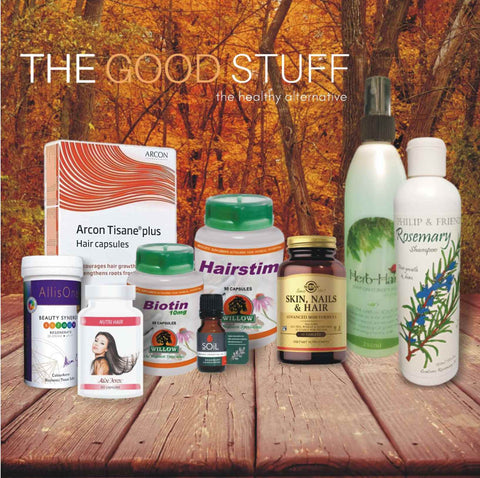
So why wait? Visit our store in Cavendish Square, Cape Town or shop online at www.thegoodstuff.co.za today to discover the best hair loss solutions and supplements available. With excellent customer care and premium service, we make it easy to take control of your hair health.
